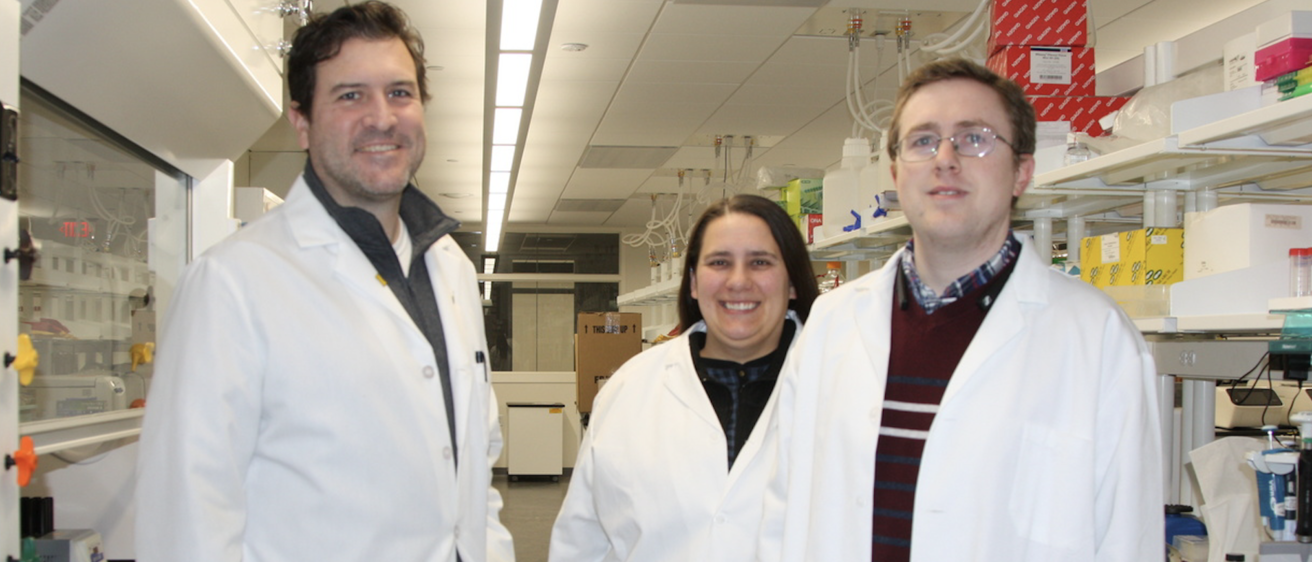Ethan Anderson, associate professor in the Department of Pharmaceutical Sciences and Experimental Therapeutics, has won a piece of a $3.8 million diabetes research grant from the American Heart Association (AHA). He will serve as a Principal Investigator and member of a team of researchers at the University of Iowa and elsewhere that will seek to identify molecules that directly or indirectly lead to damage of the heart and blood vessels in individuals with diabetes.
Anderson, who was recruited to the UI in 2016 in part because of his expertise in diabetes and heart disease, will serve as one of three PIs during the research project, which kicked off this month and will run through the end of 2023. Anderson’s lab in the new College of Pharmacy building will receive approximately $1.1 million from the grant, which he will use to conduct basic science experiments to better understand how the liver, heart and fat tissues in the body communicate via molecules secreted into the bloodstream.
“Our blood carries all sorts of molecules that organs use to communicate with each other and control metabolism,” Anderson said. “One of the most fundamental of these is insulin, which is released from the pancreas to signal other organs in the body to absorb blood sugar. But we also know there are many other small molecules released by the liver and fat tissue which ‘talk’ to other organs, particularly the heart. The purpose of this research is to identify some of these molecules, determine how they work, and then use that information to design new therapies.”
Ethan Anderson
Getting a grant like this took a lot of work and it was incredibly competitive...we may be small in comparison to the other winners, but we are mighty when it comes to our expertise in cardiovascular disease and diabetes.
Anderson will work with E. Dale Abel, MD, PhD, department executive officer of Internal Medicine and director of the Fraternal Order of Eagles Diabetes Research Center at the University of Iowa Hospital & Clinics; Kamal Rahmouni, PhD, professor of Neuroscience and Pharmacology; and several research colleagues from Massachusetts General Hospital at Harvard University.
As part of the study, researchers at the UI will compare molecules secreted from obese mice and obesity-protected mice to identify those that help prevent cardiovascular injury. The Harvard group will examine the release of exosomes from fat tissue biopsies obtained before or after bariatric surgery. The group will characterize these molecules by determining their impact on cardiovascular cells using a novel organ-on-chip technology that simulates the activities, mechanics and physiological response of entire organs and organ systems.
“These studies will identify new risk factors for cardiovascular disease in high-risk individuals with obesity, insulin resistance, and type 2 diabetes,” Abel said. “The knowledge gained from these studies will enable physicians to specifically determine the risk for cardiovascular disease in individuals with pre-diabetes and type 2 diabetes to ensure that personalized therapies can be offered.”
This award was received after a national competition in response to a specific call for applications from the AHA. Only three other institutions – Johns Hopkins, New York University, and Brigham and Women’s Hospital/Harvard – received grants to address similar questions related to diabetes and cardiovascular disease.
“Getting a grant like this took a lot of work and it was incredibly competitive,” Anderson said. “After our written proposal was initially reviewed, there was an on-site review at the AHA where our team had 30 minutes to present the project to a panel of reviewers, with each of us allotted five to seven minutes to speak. But in the end, we were one of the winners, so I would say that we may be small in comparison to the other winners, but we are mighty when it comes to our expertise in cardiovascular disease and diabetes.”
